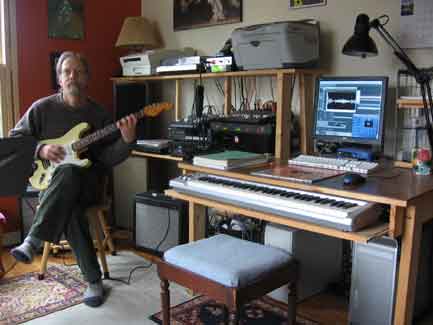
Music Theory is about the study of musical relationships - intervals, scales, chords, and how these relationships are put together to form a piece of music. The study of Music Theory bears fruit on many levels:
1. Knowledge of musical structures and relationships makes it easier to learn and remember music, and at the same time deepens one's appreciation of the composer's expressive intentions.
2. Music Theory is a language with which musicians communicate. Learning the language allows you to participate in the conversation.
3. Understanding music in terms of its structural relationships is a basic part of the craft a composer uses in shaping their artistic vision. Just as a painter studies how other painters have used color and light in order to enrich their own expressive potentials, so a composer or improviser studies Music Theory to deepen and give structure to their own musical expression.
4. The study of Music Theory gives one a system of concepts and labels that serve as a context for learning to hear musical relationships.
It is not necessary to be able to read music to learn Music Theory. Staff notation is a powerful tool for visually expressing musical relationships, but just knowing the first seven letters of the alphabet, A-G, is enough to go on.
Ear Training is the process of learning to recognize musical relationships as you hear them. A well trained ear is the single most valuable asset a musician can have. Some people would go so far as to say that the main purpose of studying Music Theory is to provide a context with which to train the ear.
Many people have the impression that you either "have an ear" or you don't, but in fact the ability to hear musical relationships can be methodically trained, just as muscles may be strengthened through weight training. The process of training one's ear is like gradually turning up the light in a dark room.
Music Theory and Ear Training are really two sides of the same coin, and together they work to dramatically increase one's musical awareness. I teach them in the context of guitar lessons, or as a separate course of study. I also teach Music Theory and Ear Training at the Community College of Vermont, in Burlington.